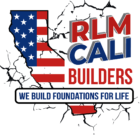Why get a home Foundation inspection?
Is it essential to get a home inspection before purchasing a house? If you’re to believe what the headline of this blog post says, you shouldn’t waste your time with them. In the end, you wouldn’t drive a car if you didn’t have insurance on it. Why, then, would you put your finances, your family’s future, and your peace of mind at risk by not getting a pre-purchase home inspection?
The following are some of the reasons why you might want to have your home’s foundation inspected:
You’ve identified a problem, such as an odd crack, an uneven floor, or doors that don’t open and close in the proper manner. Perhaps you’ve noticed a strange crack in the floor.
If you are interested in purchasing a house – Don’t put your name on the dotted line until you’ve had the foundation thoroughly inspected. In the event that the inspection reveals a problem, you will be able to factor the cost of repairs into your offer.
You are interested in selling your house – Before you put your house up for sale, you should have the foundation inspected. Failing to disclose any problems with the home’s foundation can land you in legal hot water, so it is in your best interest to avoid this situation.
It is in your best interest to maintain the structural integrity of your home. If you don’t get minor foundation problems fixed right away, they’ll snowball into major issues that are difficult and expensive to fix. Because of this, getting your home’s foundation inspected on a regular basis can provide you with much-needed peace of mind.
You want to add a floor – If you’re planning a major addition to your home, you’ll need to know if the foundation will be able to support it. This is especially important if you want to add a floor.
What kinds of foundational flaws do our inspectors typically discover?
The two most common types of foundations found in residential buildings are crawl spaces and basements. Even though you won’t be spending the majority of your time downstairs, if these issues are allowed to go unchecked, they may be threateningly hiding beneath your floorboards while you’re upstairs enjoying the warmth of your living room. Sure, you won’t be spending the majority of your time down there.
Concavities and bulges
The presence of bulges or curves in the block foundation or concrete walls may be an indication of movement in the foundation. The fluctuating temperatures that we experience throughout the year in Canada cause the ground to swell and contract, which can put stress on the foundation walls of buildings.
Cracking
After excavation, the soil that is immediately adjacent to home foundations is very loose. Your foundation may develop cracks as a result of this soil settling, which may also be accompanied by vibrations from nearby sources.
Leaking
It is a sign of impending disaster if the foundation of your home has cracks in it. Weeping tile, which is made of plastic with holes punched in it and is installed on the exterior of the footing (the concrete slab that sits below the foundation), is intended to collect water that has accumulated there. However, this solution is not always successful. In the end, when an excessive amount of water seeps through these cracks, you will have a leaking basement. This will create an environment that is damp, wet, and poorly ventilated, which is ideal for the growth of mold.
In the event that you require additional information, you are able to seek assistance from the RLM Retrofit Foundation that is situated in your region. We would appreciate it if you could give us a call at the following number: (800) 824-6699 so that we can assist you with the Foundation Inspection Bell Canyon and repair of your foundation.
What exactly is expansive soil Bell Canyon
Why Is It Necessary for Me to Fix the Cracks in the Foundation Bell Canyon










